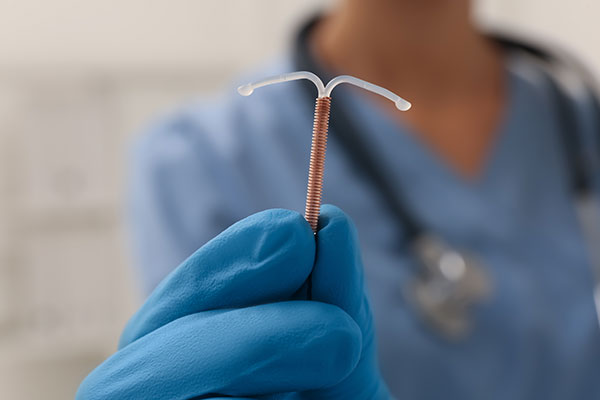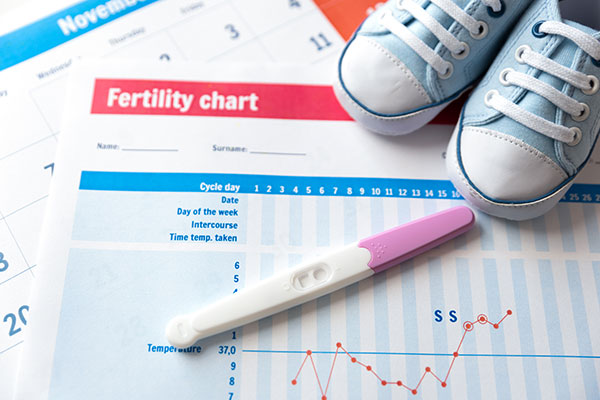Navigating your gynecological health can be a journey filled with questions and uncertainties. Here are the top 10 questions we recommend asking your gynecologist to empower your health and well-being.
How Menopause Can Impact Sleep
Menopause is a significant life transition for women, marked by the end of menstrual cycles and a decrease in reproductive hormones. While it’s a natural part of aging, menopause can bring about various symptoms that impact daily life, including sleep disturbances.
Regaining Bladder Control After Giving Birth
Childbirth is a miraculous event, but it can bring about changes to your body that you might not have anticipated. One such change that many new mothers experience is urinary incontinence (UI), which refers to the involuntary leakage of urine. This can happen when coughing, sneezing, laughing, or during physical activity. At North Pointe OB/GYN in Cumming, we understand the challenges this condition poses and are committed to helping you regain bladder control after giving birth. Here are effective ways to manage and treat urinary incontinence postpartum.
Understanding Postpartum Urinary Incontinence
After childbirth, it’s common for women to experience temporary urinary incontinence due to the stress and strain the pelvic floor muscles have endured. These muscles support the bladder, and when they’re weakened, they can lead to UI. It’s important to understand that this is a common issue and you’re not alone. There are various types of UI, with stress incontinence and urge incontinence being the most common among new mothers.
Effective Strategies to Regain Bladder Control
1. Pelvic Floor Exercises: One of the most effective ways to regain bladder control is through pelvic floor exercises, commonly known as Kegel exercises. These exercises help strengthen the pelvic floor muscles, which can help reduce or eliminate leaks. It’s important to perform these exercises correctly, so seek guidance from your healthcare provider at North Pointe OB/GYN.
2. Bladder Training: Bladder training involves learning to delay urination after feeling the urge to go. It helps increase the capacity of the bladder and improves control over the timing of urination. This method requires patience and practice, and your provider can offer tips and strategies to make it more effective.
3. Maintain a Healthy Weight: Extra weight can increase pressure on your bladder and surrounding muscles, worsening UI. Maintaining a healthy weight through a balanced diet and regular exercise can help alleviate some of this pressure and improve symptoms.
4. Avoid Bladder Irritants: Certain foods and drinks can irritate the bladder and exacerbate incontinence symptoms. Limiting caffeine, alcohol, spicy foods, and acidic fruits can help manage UI. Additionally, staying hydrated and spreading fluid intake throughout the day can also be beneficial.
5. Use of Incontinence Products: While working on regaining bladder control, incontinence products such as pads or protective underwear can provide security and comfort. They can help manage leaks and allow you to continue your daily activities without worry.
Professional Treatment Options for Urinary Incontinence
If lifestyle changes and home strategies aren’t enough to control your UI, there are medical treatments available:
1. Physical Therapy: Specialized physical therapists can provide targeted exercises and techniques to strengthen the pelvic floor and improve bladder control.
2. Medication: Certain medications can help manage symptoms of urge incontinence by calming an overactive bladder.
3. Minimally Invasive Procedures: For more severe cases, procedures like nerve stimulations or injectable bulking agents can offer relief when other treatments haven’t been effective.
4. Surgery: In cases where other treatments have failed, surgical options are available to provide a more permanent solution to urinary incontinence.
At North Pointe OB/GYN in Cumming, we are dedicated to providing compassionate and comprehensive care to address postpartum urinary incontinence. We understand the impact that UI can have on your quality of life and are here to support you in finding the right solution. If you’re struggling with bladder control after giving birth, don’t hesitate to reach out to us. Together, we can develop a personalized plan to help you regain your confidence and control.
The Vital Role of Folic Acid During Pregnancy
Pregnancy is a time of significant changes and careful health management. One of the most critical elements for a healthy pregnancy is the intake of folic acid. North Pointe OB/GYN in Cumming highlights the crucial role of this vitamin in prenatal care, emphasizing its benefits for both the mother and the developing baby.
What is Folic Acid?
Folic acid is a synthetic form of folate, a B-vitamin (B9) found naturally in certain foods. It is vital for the creation of new cells, making it essential during periods of rapid growth such as pregnancy and infancy. Folic acid helps prevent neural tube defects (NTDs) in the developing fetus, serious birth defects of the brain and spine, such as spina bifida and anencephaly.
Why Folic Acid is Essential During Pregnancy
1. Prevents Neural Tube Defects: The primary benefit of folic acid intake during pregnancy is the significant reduction in the risk of neural tube defects in newborns. NTDs can lead to severe disabilities or even infant death. Consuming adequate folic acid before conception and during early pregnancy lowers the risk of these defects.
2. Supports Placental Development: Folic acid is also essential for the growth and development of the placenta, the organ that supplies oxygen and nutrients to the developing baby. A healthy placenta is vital for a successful pregnancy.
3. Reduces Other Birth Defects: Apart from preventing NTDs, adequate folic acid intake is associated with a lower risk of other birth defects, including cleft lip, cleft palate, and certain types of heart defects.
4. Promotes Maternal Health: Folic acid benefits the mother’s health by reducing the risk of preeclampsia, a potentially dangerous condition characterized by high blood pressure and damage to organ systems, most often the liver and kidneys.
How to Ensure Adequate Folic Acid Intake
North Pointe OB/GYN recommends the following to ensure adequate intake of folic acid:
1. Folic Acid Supplements: Women of childbearing age should take a daily supplement of 400 to 800 micrograms (mcg) of folic acid. Women with a history of NTDs in previous pregnancies may need a higher dose, as advised by their healthcare provider.
2. Diet: Incorporate folate-rich foods into your diet, including dark leafy greens, fruits, nuts, beans, peas, dairy products, and fortified foods such as cereals and bread.
3. Prenatal Vitamins: Most prenatal vitamins contain the recommended amount of folic acid. Start taking prenatal vitamins before conception, if possible, and continue throughout pregnancy.
4. Regular Check-ups: Attend all prenatal appointments with your healthcare provider at North Pointe OB/GYN. These visits are crucial for monitoring your health and the development of your baby, including the effectiveness of folic acid intake.
Talk to Our Prenatal Experts for More Nutrition Advice
Folic acid plays a vital role in ensuring a healthy pregnancy and minimizing the risk of birth defects. By taking folic acid supplements, eating a balanced diet, and attending regular prenatal check-ups, expectant mothers can significantly contribute to the health and well-being of their developing baby. North Pointe OB/GYN in Cumming is dedicated to providing comprehensive prenatal care and guidance, ensuring that every pregnancy is as healthy and successful as possible. For more information on folic acid and prenatal care, contact our office today.
Anticipating Arrival: 5 Signs That Labor Is Near
The final weeks of pregnancy are filled with anticipation and excitement, as expectant mothers and their families eagerly await the arrival of their new addition. Knowing the signs that labor is near can help you feel more prepared for the big day. At North Pointe OB/GYN in Cumming, we are committed to guiding and supporting our patients through every step of their pregnancy journey, including the final stages leading up to labor. Here are five signs that suggest labor might be just around the corner.
1. Lightening
One of the first signs that labor is approaching is known as “lightening.” This occurs when the baby drops lower into the pelvis, getting into position for birth. Lightening can happen a few weeks or just a few hours before labor begins. It can lead to increased pelvic pressure and more frequent urination, as the baby’s head puts pressure on your bladder. While it might make moving around a bit more challenging, many women find they can breathe a little easier after lightening occurs because there’s less pressure on the diaphragm.
2. Increased Braxton Hicks Contractions
Braxton Hicks contractions are often referred to as “practice contractions” and can occur throughout your pregnancy. However, as you approach labor, these contractions may become more frequent and intense. Unlike true labor contractions, Braxton Hicks are usually irregular, don’t get closer together over time, and can often be relieved by changing positions or moving around. If your contractions begin to form a regular pattern and continue to increase in strength, it’s a sign that you’re moving closer to actual labor.
3. Nesting Instinct
Many women experience a burst of energy and the urge to prepare their home for the baby’s arrival, known as the nesting instinct. This can include organizing the nursery, cleaning the house, or cooking meals to freeze for after the baby’s born. While the nesting instinct can vary in intensity and can occur at different times in your pregnancy, a sudden urge to nest close to your due date can be a sign that labor is approaching.
4. Changes in Vaginal Discharge
As your body prepares for labor, you may notice an increase in vaginal discharge that is clear, pink, or slightly bloody. This is called the “bloody show” and happens when the mucus plug that has sealed the cervix during pregnancy dislodges. The loss of the mucus plug can occur days before labor starts or at the onset of labor. An increase in vaginal discharge or a noticeable “bloody show” can be an indicator that labor is imminent.
5. Water Breaking
Perhaps the most well-known sign of labor is the breaking of your water, or the rupture of the amniotic sac. While it’s a definitive sign that labor has begun or will soon, it’s worth noting that only about 15% of women experience their water breaking before labor starts. If your water breaks, it can feel like a sudden gush or a steady trickle of fluid. This is the time to contact your healthcare provider and head to the hospital, as labor could be close or already underway.
Preparing for Labor
Recognizing these signs of labor approaching can help you feel more prepared for the birth of your baby. At North Pointe OB/GYN in Cumming, we encourage expectant mothers to familiarize themselves with these signs and to discuss any questions or concerns they may have during their prenatal visits. Our team is dedicated to providing the support and care you need as you embark on the incredible journey of childbirth. Remember, every pregnancy and labor experience is unique, so it’s important to stay in close communication with your healthcare provider as your due date approaches.
Everything You Need to Know About IUDs
In the quest for reliable and hassle-free contraception, many turn to Intrauterine Devices (IUDs) for their effectiveness and ease of use. At North Pointe OB/GYN in Cumming, we believe in empowering our patients with comprehensive knowledge about their contraceptive options. Here’s everything you need to know about IUDs, from their basics to the different types available and how they work to prevent pregnancy.
What Are IUDs?
IUDs are small, T-shaped devices inserted into the uterus by a healthcare professional to prevent pregnancy. They are long-term, reversible forms of birth control that can remain in place for several years, depending on the type. IUDs are one of the most effective forms of contraception available today, with more than 99% effectiveness in preventing pregnancy.
Types of IUDs
There are two main types of IUDs: hormonal and non-hormonal. Each type has its own mechanism of action and duration of effectiveness.
Hormonal IUDs
Hormonal IUDs release a small amount of progestin, a hormone similar to progesterone produced by the ovaries. This hormone works by:
- Thickening the cervical mucus to prevent sperm from entering the uterus.
- Thinning the lining of the uterus, making it less suitable for a fertilized egg to implant.
- In some cases, suppressing ovulation.
Hormonal IUDs can last between 3 to 6 years, depending on the brand. Common brands include Mirena, Kyleena, Skyla, and Liletta.
Non-Hormonal IUDs
The non-hormonal IUD, typically represented by the brand Paragard in the United States, is made of copper. The copper acts as a spermicide, destroying sperm before they can reach and fertilize an egg. The presence of copper also creates an inflammatory reaction within the uterus that is toxic to sperm. This type of IUD can last up to 10 years.
How IUDs Prevent Pregnancy
IUDs provide a physical barrier and chemical environment that is inhospitable to sperm, thereby preventing fertilization. The effectiveness of IUDs comes from their ability to interfere with the sperm’s ability to reach and fertilize an egg. Additionally, the hormonal IUDs alter the uterine lining, making it less receptive to a fertilized egg, further reducing the chance of pregnancy.
The Insertion Process
The insertion of an IUD is a quick procedure typically done in a healthcare provider’s office, like North Pointe OB/GYN. While the process can cause some discomfort, it is generally well-tolerated. Patients may experience cramping or spotting after insertion, but these symptoms usually subside within a few days to weeks. A follow-up visit is often recommended to ensure the IUD is properly in place.
Benefits and Considerations
IUDs offer several benefits, including long-term protection, reversibility, and the convenience of not having to remember daily pills. However, they do not protect against sexually transmitted infections (STIs), so using condoms in conjunction with an IUD is advisable for STI prevention.
Choosing the right type of IUD depends on individual health, lifestyle, and the duration of contraception desired. Discussing your options with a healthcare provider at North Pointe OB/GYN will help determine the best choice for your specific needs.
Empowering Your Choice
Understanding your contraceptive options is key to making informed decisions about your reproductive health. IUDs represent a highly effective, long-term solution for those seeking reliable birth control. At North Pointe OB/GYN in Cumming, our team is dedicated to providing personalized care and guidance to help you choose the best contraceptive method for your lifestyle and health goals. If you’re considering an IUD or have questions about contraception, we’re here to support your journey toward empowered health decisions.
The Role of Hormones in Female Sleep
Sleep is an intricate dance, influenced by a myriad of factors, and for women, hormones play a pivotal role in this delicate balance. As we navigate the different stages of our lives, from adolescence to post-menopause, hormonal fluctuations can profoundly impact our sleep patterns and quality. Here’s an exploration of how hormones intertwine with female sleep:
Menstrual Cycle
During the menstrual cycle, levels of both estrogen and progesterone rise and fall. Estrogen, which surges in the first half of the cycle, can promote better sleep by enhancing the duration of rapid eye movement (REM) sleep. However, as progesterone levels rise in the second half, some women may experience disruptions in their sleep, mainly due to the hormone’s thermogenic effect, which can raise body temperature.
Pregnancy
Pregnancy is a time of significant hormonal upheaval. Elevated levels of progesterone can make expectant mothers feel excessively sleepy, especially during the first trimester. As the pregnancy progresses, physical discomfort, combined with hormones, can lead to frequent nighttime awakenings, restless leg syndrome, and sleep apnea in some cases.
Perimenopause and Menopause
As women approach menopause, the decline in estrogen and progesterone levels can lead to several sleep disturbances. Hot flashes, a direct result of fluctuating estrogen, can cause night sweats and subsequent awakenings. The decrease in progesterone, a hormone that has sedative properties, can also contribute to insomnia.
Thyroid Hormones
Thyroid hormones, which regulate metabolism, can also influence sleep. An overactive thyroid (hyperthyroidism) can lead to difficulties in falling asleep, while an underactive thyroid (hypothyroidism) can make women feel constantly fatigued.
Stress and Cortisol
While not exclusive to women, the stress hormone cortisol plays a role in sleep dynamics. Elevated nighttime cortisol levels can prevent restful sleep. For many women juggling multiple roles, chronic stress can disrupt the delicate balance of the sleep-wake cycle.
Holistic Approaches to Hormonal Sleep Challenges
Understanding the relationship between hormones and sleep allows us to approach sleep disturbances holistically. Lifestyle modifications, such as stress management techniques, sleep hygiene practices, and dietary changes, can help regulate hormonal imbalances. For some, hormone replacement therapy or other medical interventions might be beneficial.
Hormones are inextricably linked with female sleep patterns. Their ebb and flow throughout different life stages present unique challenges and opportunities for intervention. If you find yourself struggling with sleep and suspect hormones might be a factor, seeking expert guidance can pave the way for restful nights.
At North Pointe OB/GYN, we recognize the importance of sleep in female health. If you believe that your sleep quality has been compromised due to hormones, please reach out to our Cumming clinic today.
Addressing Common Concerns About Labor and Delivery
Labor and delivery is a momentous event in a woman’s life, filled with anticipation, excitement, and often, many questions. At North Pointe OB/GYN in Cumming, we understand that knowledge is power, especially when it comes to childbirth. In this blog, we address some of the most common concerns and FAQs surrounding labor and delivery to help expectant mothers feel more informed and at ease as they approach this incredible journey.
FAQs about Labor and Delivery
1. When Should I Go to the Hospital?
This is one of the most frequent questions expectant mothers have. Generally, it’s recommended to go to the hospital when contractions are about five minutes apart, lasting for one minute, and have been that way for about an hour. However, every pregnancy is unique. If your water breaks, if you experience significant vaginal bleeding, or if you feel something isn’t right, you should go to the hospital immediately.
2. How Long Will My Labor Last?
The duration of labor varies widely among women. For first-time mothers, labor often lasts 12 to 24 hours, but it can be significantly shorter or longer. Subsequent deliveries usually have shorter labor periods. Our team at North Pointe OB/GYN will monitor your progress and provide guidance throughout your labor.
3. What Pain Relief Options are Available?
Pain management during labor includes various options, from natural methods like breathing exercises and birthing balls to medical interventions such as epidurals and pain medications. The choice depends on your pain tolerance, medical history, and personal preferences. We work closely with you to create a birth plan that respects your wishes and ensures a safe delivery.
4. Can I Have a Vaginal Birth if I Had a C-Section Before?
Many women are able to have a vaginal birth after a cesarean (VBAC). However, it depends on the reason for the previous C-section, the type of incision made, and other individual factors. Our doctors at North Pointe OB/GYN will evaluate your specific situation and discuss the safest option for you and your baby.
5. What are the Signs of Labor?
Signs of labor can include contractions that become more consistent and intense, lower back pain, breaking of the water (rupture of membranes), and a bloody or mucus-like vaginal discharge. If you notice any of these signs, it’s important to contact your healthcare provider.
6. What Should I Bring to the Hospital?
Prepare a hospital bag ahead of time with essentials such as a birth plan, insurance information, comfortable clothes, toiletries, and items for your baby (like a going-home outfit). North Pointe OB/GYN provides a comprehensive checklist to help you pack everything you need.
7. What if I Need a Cesarean Section?
Cesarean sections are performed when vaginal delivery could pose a risk to the mother or baby. At North Pointe OB/GYN, we have state-of-the-art facilities and experienced staff to ensure a safe and comfortable experience, should a C-section be necessary.
Trust Our Experienced Labor and Delivery Team in Cumming
At North Pointe OB/GYN in Cumming, we are committed to providing compassionate, comprehensive care to expectant mothers. Understanding common concerns about labor and delivery can help alleviate anxiety and prepare you for the birth of your child. For more personalized information or to discuss your birth plan, please reach out to us.
What to Consider When You’re Ready to Get Pregnant
At North Pointe OB/GYN in Cumming, we understand that the journey to becoming a parent is an exciting time filled with anticipation and planning. If you’re considering starting or expanding your family, there are several important factors to consider to ensure a healthy pregnancy. Here’s what you need to know when you’re ready to get pregnant.
1. Consult with Your Healthcare Provider
Before you start trying, schedule a visit with your healthcare provider. They can offer valuable advice, conduct a preconception checkup, and address any health concerns that might affect your pregnancy. Discuss any current medications and their implications for pregnancy.
2. Stop Your Birth Control
If you’re on birth control, you’ll need to stop it to become pregnant. The time it takes for your fertility to return can vary depending on the method of contraception you’ve been using. For example, those coming off the pill might experience a more immediate return to fertility compared to those stopping long-acting reversible contraceptives like IUDs or implants.
3. Understand Your Menstrual Cycle
Understanding your menstrual cycle can help you identify your most fertile days. Ovulation typically occurs about 14 days before your next period. Using an ovulation predictor kit or tracking your basal body temperature can help you pinpoint the best time for conception.
4. Adopt a Healthy Lifestyle
Optimal health before pregnancy can improve your chances of conceiving and having a healthy pregnancy. This includes:
- Eating a Balanced Diet: Focus on a diet rich in fruits, vegetables, whole grains, lean proteins, and healthy fats. Consider adding prenatal vitamins that contain folic acid to your regimen.
- Regular Exercise: Aim for moderate exercise most days of the week, but avoid overly strenuous activities.
- Maintaining a Healthy Weight: Being underweight or overweight can affect your fertility and the health of your pregnancy.
- Limiting Caffeine and Alcohol: Reduce caffeine intake and eliminate alcohol, as both can affect fertility and are not recommended during pregnancy.
- Quitting Smoking: Smoking can affect fertility in both men and women and is harmful during pregnancy.
5. Manage Stress and Rest
High levels of stress can affect fertility and your overall health. Find stress-reduction techniques that work for you, such as yoga, meditation, or deep breathing exercises. Ensure you’re getting enough rest and sleep.
6. Financial and Emotional Preparedness
Consider the financial and emotional aspects of parenthood. Plan for the costs associated with pregnancy and raising a child. It’s also important to feel emotionally ready for the changes and challenges that come with parenthood.
7. Partner’s Health
Your partner’s health is just as important in this journey. Encourage them to adopt a healthy lifestyle, quit smoking, and limit alcohol. Discuss any health concerns with your healthcare provider.
8. Recognize the Importance of Timing
Understand that it might take time to conceive. Most couples conceive within a year of trying. If you’re over 35 or have known health issues that might affect fertility, discuss this with your healthcare provider.
Your Trusted Partner for Pregnancy Planning in Cumming
Preparing for pregnancy is an important step in your journey to parenthood. At North Pointe OB/GYN in Cumming, we’re dedicated to supporting you through this exciting time. Our team is here to provide guidance, medical care, and support every step of the way. Contact us today for a preconception consultation and start your journey to a healthy pregnancy.
Ovarian Cyst Versus Kidney Stone: How to Tell the Difference
Pain in the abdominal region can be concerning, especially when its source is unclear. Among women, two common culprits of abdominal or pelvic pain are ovarian cysts and kidney stones. While both can cause significant discomfort, it’s essential to differentiate between them to ensure proper treatment. This blog from North Pointe OB/GYN in Cumming aims to shed light on the key differences between ovarian cyst pain and kidney stone pain.
What are Ovarian Cysts?
Ovarian cysts are fluid-filled sacs that develop in or on a woman’s ovary. Most of the time, these cysts are harmless and may not even produce any symptoms. However, if a cyst becomes large or ruptures, it can cause pain and other complications.
What are Kidney Stones?
Kidney stones are hard deposits made of minerals and salts that form inside the kidneys. When these stones move into the ureter (the tube connecting the kidney and bladder), they can cause severe pain and other symptoms.
Distinguishing Between Ovarian Cyst Pain and Kidney Stone Pain
Here are some factors to consider when trying to diagnose the source of your discomfort:
- Location of Pain:
- Ovarian Cyst: The pain is usually felt on one side of the lower abdomen, depending on which ovary has the cyst. It can be sharp or dull and may come and go.
- Kidney Stone: The pain typically starts in the back and side below the ribs, eventually radiating to the lower abdomen and groin.
- Nature of Pain:
- Ovarian Cyst: The pain can be constant or intermittent, potentially becoming severe if the cyst ruptures.
- Kidney Stone: Kidney stone pain is often sharp and sudden, increasing in intensity as the stone moves through the ureter.
- Other Symptoms:
- Ovarian Cyst: Symptoms may include bloating, menstrual irregularities, pelvic fullness, or pain during intercourse.
- Kidney Stone: Common symptoms include hematuria (blood in urine), frequent urination, nausea, vomiting, and fever if an infection is present.
- Duration:
- Ovarian Cyst: Pain can last anywhere from a few hours to a few days. Persistent pain should prompt a visit to the doctor.
- Kidney Stone: Pain can last until the stone is passed, which can be hours to weeks. Severe pain or pain accompanied by fever or nausea may require urgent care.
Diagnosis and Treatment
If you’re experiencing abdominal or pelvic pain, it’s essential to see a healthcare professional for an accurate diagnosis. They may use various diagnostic tools:
- For ovarian cysts, ultrasounds, CT scans, or MRIs can help visualize the cyst’s size and location.
- For kidney stones, ultrasounds, CT scans, and urine tests can detect the stone’s presence and its size.
Treatment varies based on the diagnosis:
- Ovarian Cysts: Often, they may resolve on their own. In some cases, birth control pills or surgery might be recommended.
- Kidney Stones: Treatment can include pain relievers, medical therapy to help pass the stone, or surgical procedures for larger stones.
Call Our Cumming Women’s Health Experts for Help
While both ovarian cyst and kidney stone pain can be uncomfortable, understanding their differences is vital for proper care. Always consult a healthcare professional if you experience persistent or severe abdominal or pelvic pain. At North Pointe OB/GYN in Cumming, we’re committed to providing expert guidance and care for all your gynecological concerns.












